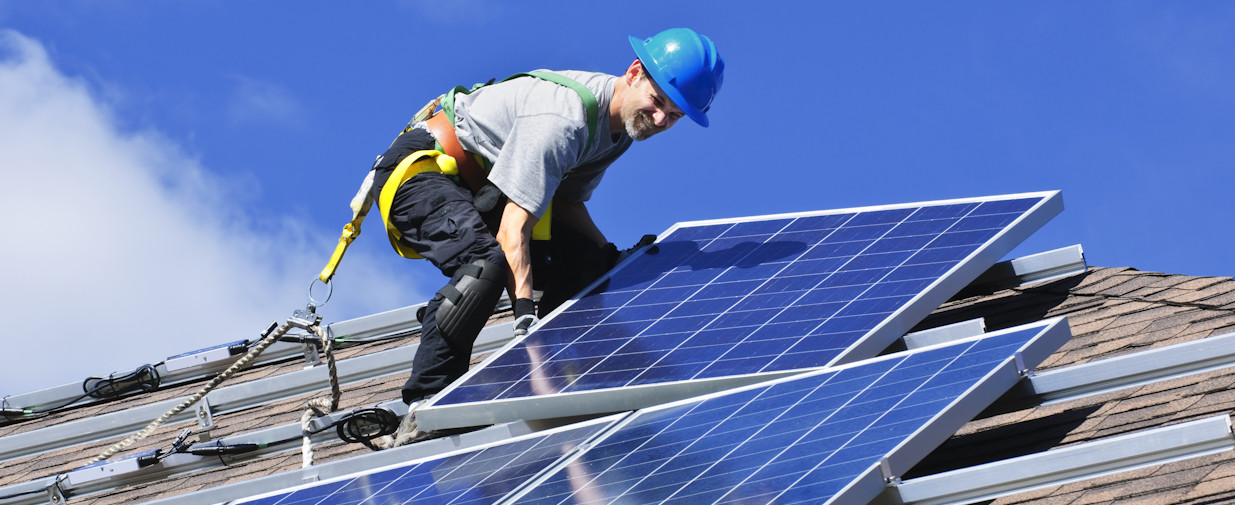Change your business address
If you're a full access user, you can update your business, registered, mailing and personal addresses within Online for Business and the Business banking app.
Read time: 4 mins Added date: 04/07/2024
In the ever-changing world of sustainability what does good look like? Our panel event at UKREiiF 2024 examined reflections from the intersection of finance and the housing sector covering both existing and new homes of all tenures.

As part of our series of articles reflecting on UKREiiF 2024, we unpack the challenges facing the UK’s built environment and the solutions discussed by some of the industry’s leading figures in the Lloyds Bank Pavilion.
Starting with ‘The Evolution of Sustainability in real estate and housing’, a panel hosted by Chinyelu Oranefo, Lloyds Bank’s Director of Sustainability and ESG Finance, we heard insight from:
Together, they discussed the major sustainability themes that are on the horizon for the built environment sector and the tools and schemes that are already in place to support housebuilders in these efforts.
Chinyelu opened the session by highlighting that a majority of climate scientists predict we’re on track to miss the 1.5℃ target set out in the Paris Agreement. She said: “Continuing the current approach won’t be enough to turn the dial on sustainability.”
The panellists acknowledged how the previous two summers have taught us that the weather has a greater bearing on our buildings, places, and wellbeing than ever before. The UK’s built environment hasn’t been built to cope with extreme heat. Public transport infrastructure also wilts under the strain of the changing climate. The critical combination of these factors give rise to the risk that people may not be able to get to built spaces and may not want to remain in them once there.
Maintaining ‘business as usual’ is only going to heighten these impacts on daily lives. A dramatic shift in direction is needed, and the panellists focused on what the UK can do to change the way we build our homes going forward.
The first change is that all local authorities, developers and builders must ensure reducing carbon emissions is baked into all plans for new developments from the outset.
Places for London’s Lucy Atlee revealed that the organisation has developed the Sustainable Development Framework to help stakeholders plan projects according to the twin needs of the environment and the community. This tool scores projects based on their impact towards creating vibrant places, evolving high streets and creating liveable communities – all to help improve social outcomes.
Mitch Cooke also discussed how future nature related disclosures like the Taskforce on Nature-related Financial Disclosures (TNFD) would lead to the upfront consideration of where materials – such as bricks or timber – are sourced, and how they can be recycled at the end of a building’s life cycle. Here, a nature ecosystem services approach would provide both resilience and adaptation measures whilst enhancing wellbeing.
Our panel also discussed the power of innovative procurement and commercial models in helping to deliver sustainable homes more affordably. The Crown Estate, which is one of the largest landowners in the UK, is teaming-up on a pilot scheme with three SMEs to test and push sustainability standards in housing delivery.
Rob Chesworth explained that pilots like this are important because they set an example for what can be achieved and give others a model to apply improvements to projects at scale, which is what will ultimately make schemes more cost-effective.
It’s also important to consider the social side of ESG, Emily Morrison shared a four scope approach (PDF, 10MB) for articulating the social impact that can be achieved whilst creating places. This approach ensures that developers can add value to the asset itself as well as enhancing the social value for key stakeholders and the communities around it.
Chinyelu Oranefo sits in the Sustainability & ESG Finance team which supports clients on their sustainability journeys and structures discounted green and sustainability-linked loans for clients to support sustainability best practice.
Visit our sustainability hub to find out more about how Lloyds Bank can support Real Estate and Housing businesses to grow sustainably.